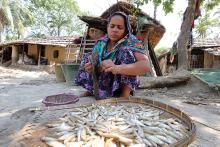Land Library
Welcome to the Land Portal Library. Explore our vast collection of open-access resources (over 74,000) including reports, journal articles, research papers, peer-reviewed publications, legal documents, videos and much more.
/ library resources
Showing items 1 through 9 of 20.Twenty-seven nations are classified as ‘water scarce’, a further 16 as ‘water stressed’. This situation, coupled with the fact that many surface and groundwater systems are shared between two or more states, has led governments to develop sustainable water management strategies.
We are continuously transforming a resource that is both essential and finite: our soils. We do so in a way that has serious social, economic and ecologic implications. There is an urgent need to shift these transformations to more sustainable pathways.
ELD is a joint initiative of Germany, the European Commission and the United Nations Convention to Combat Desertification (UNCCD). ELD offers a strong platform for raising public awareness of land degradation and advocating sustainable land-use strategies.
Soils around the world are degrading rapidly, reducing ecosystem diversity and some important functions, threatening food and other human securities, and increasing vulnerability to climate change. This is a vicious cycle created by and leading to further unsustainable land-use practices.
Conservation agriculture (CA) is an important form of sustainable land management, provided that the three basic principles - no tillage, permanent soil cover, diverse crop rotation or intercropping - are always observed.
Protecting land is vital to achieving food security and reducing poverty. This is the insight on which the global WOCAT network was built two decades ago.
Not only has soil degradation in Niger been halted thanks to an integrated approach combining water harvesting technologies, the application of organic residues and planting of fruit trees and vegetables.
Rangelands cover 30 per cent of the global land surface. They support a considerable share of the global ruminant value chains, are habitat for a high plant and animal diversity and have various ecological, economic and social functions.
The livelihoods of many rural dwellers are dependent on having secure and equitable access to land. Tenure security is also a prerequisite for sustainable land management. The massive interest of commercial investors has increased the pressure on land globally.


